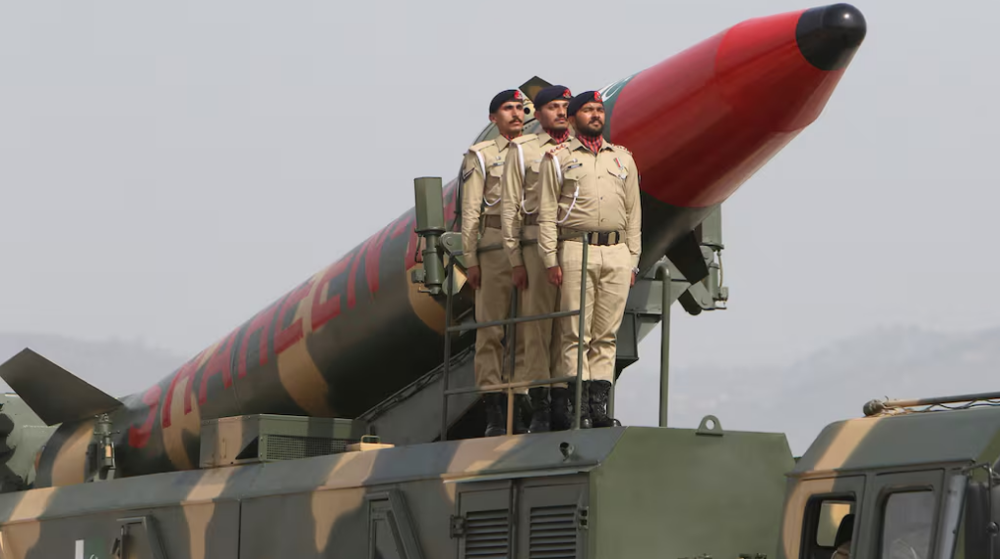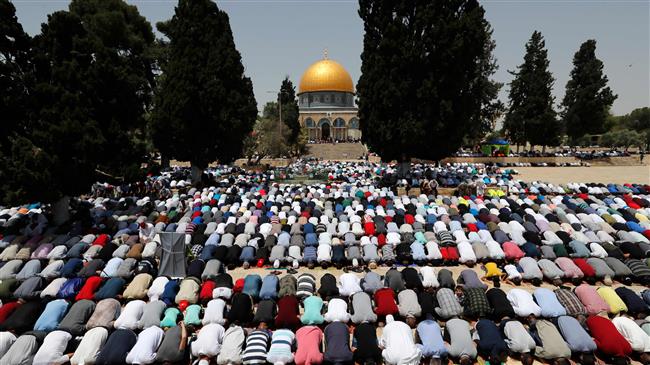Pakistan moves to block trailer of movie deemed harmful to Muslim unity
Pakistan says it has approached various social media platforms to block the trailers of a divisive movie that was recently produced by a UK-based production house and is deemed harmful to Muslim unity.
The Pakistan Telecommunication Authority (PTA) said in a recent statement that it had directed various social media platforms, including YouTube, Facebook, Instagram, and Twitter, to have all the content related to the movie blocked due to the film’s sacrilegious content.
The feature film revolves around the story of an Iraqi child in the midst of a war-ravaged Arab country who learns the importance and power of patience.
The film centers on the crimes committed by the Daesh Takfiri terrorist group in Iraq, Syria and elsewhere.
A number of renowned Shia Muslim figures have questioned the intention behind making the film, which was released on December 29 in London.
Senior Iranian clerics and sources of emulation Ayatollah Nasser Makarem Shirazi, Ayatollah Hossein Nuri Hamedani and Ayatollah Lotfollah Safi Golpayegani have already banned watching the film, believing that it will cause discord among Muslims, particularly between Shia and Sunni Muslims.
“… all Muslims must know that the messages intended to be conveyed by this film are neither the messages of Islam nor those of the Shia school of thought,” Ayatollah Shirazi said at the time when reports emerged about the production of the film.
Some senior Iranian officials have recently censured the motive behind the production of the feature film depicting the life of the infallible daughter of the holy prophet of Islam, Hazrat Fatima Zahra (AS), describing it as an attempt to sow the seeds of discord among Muslims.
“The secret of promoting #PureIslam is unity and rapprochement of religions. Western, Hebrew, Arabic oriented policies are pursued under the strategy of divisiveness, once with the establishment of ISIS, and other day with the production of "The Lady of Heaven," Secretary of Iran's Supreme National Security Council (SNSC) Ali Shamkhani wrote on his twitter page on December 27.
Last week, a group of Lebanese Shia scholars in a statement questioned the claim of the producers of the film that it is about the life of the beloved daughter of the honorable prophet of Islam, saying its main objective is fanning the flames of discord among Muslims.
Referring to the writer's background and his ties with British spy services, the statement said the upcoming screening of the movie is taking place in a sensitive time when the Zionist-US enemy is seeking to spread disunity among Islamic schools of thought.
It expressed hope that scholars of all Islamic denominations would remain vigilant in the face of such moves and make efforts to promote kindness, understanding and proximity among all Muslims.
Sheikh Yasser al-Habib, a controversial Shia scholar who currently resides in the UK, has written the screenplay. He also heads an organization that stormed the Iranian Embassy in the UK a few years ago.
Before seeking refuge in the UK, al-Habib was arrested in the early 2000s in Kuwait for inciting Sunni-Shia division. After being pardoned by the Emir of Kuwait in 2004, al-Habib fled Kuwait, eventually landing in the UK.
His statements over the years have been used to cause disunity between Muslims and hatred of Shia Muslims.
In September 2010, Leader of the Islamic Revolution Ayatollah Seyyed Ali Khamenei helped calm tensions between Shia and Sunni Muslims by issuing a fatwa banning the making of any remarks insulting to any of the figures and symbols celebrated by Sunni brethren.
During a meeting with Shia and Sunni figures in 2018, Ayatollah Khamenei lauded the strong unity among Iran’s Shia and Sunni Muslims despite all enemy attempts to sow discord among them. The Leader called for vigilance among Muslims against divisive enemy schemes.
‘All wars have rules. All of those rules have been broken’ by Israel
VIDEO | Report flags India’s violation of rights of Rohingya detainees
Turkey's foreign minister meets Syria's de facto leader in Damascus
'Next to impossible' to rescue patients from Gaza's Kamal Adwan Hospital: Director
VIDEO | Vietnam current prosperity
Report blames gasoil exports for shortage at Iranian power plants
VIDEO | Hind Rajab Foundation names Israeli war criminals vacationing after Gaza genocide
VIDEO | Australians rally for Gaza ahead of Christmas festivities
















 This makes it easy to access the Press TV website
This makes it easy to access the Press TV website